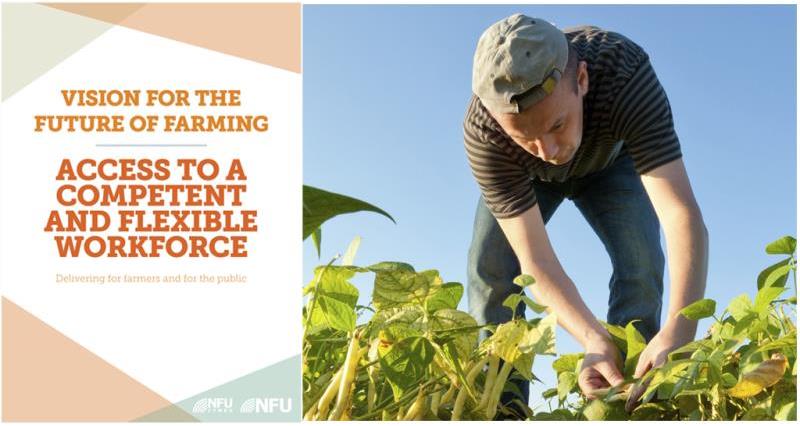Looking ahead to Brexit, this latest report from the NFU’s Vision for the Future of Farming says that the supply of seasonal workers for the next two seasons is now in jeopardy. The number of seasonal workers coming to work on British farms in the horticultural sector this year has already dropped 17%.
The NFU report says an immigration policy should be created to offer British farms flexible solutions for recruiting both seasonal and permanent overseas workers, with a focus on a competent and reliable workforce.
 NFU President Meurig Raymond said: “It is crucial that the government addresses these concerns immediately to ensure that farming has access to a competent and reliable workforce, now and post-Brexit.
NFU President Meurig Raymond said: “It is crucial that the government addresses these concerns immediately to ensure that farming has access to a competent and reliable workforce, now and post-Brexit.
“A solution, such as a suite of visa or permit schemes, is urgently needed to avoid losing a critical number of workers that could jeopardise future harvests and food production.
Related...
“Recruiting overseas workers is not something that can be done instantly. It takes time for businesses to recruit and for seasonal work they typically plan nine months in advance.
“The supply of seasonal workers for the 2018 and 2019 seasons is already in danger and government must, as a priority, establish a system to enable sufficient recruitment of seasonal labour before the UK leaves the EU.
In addition the report also expresses serious concerns about the industry’s ability to maintain an adequate number of permanent workers. Many come from EU member states and now face uncertain status following Brexit.
The NFU says it is calling for government to provide urgent clarity on the status of EU nationals living and working in the UK, given the many permanent workers in the agri-food sector.
Mr Raymond adds: “The forthcoming Immigration Bill must recognise the importance of migration for certain sectors and Government must recognise the strategic importance of the UK farming industry as the bedrock of the UK’s food and drink industry, worth £109 billion to the economy.
“The NFU would like to see the government consult extensively with the farming industry on this issue to ensure a solution is reached and as soon as possible.”
